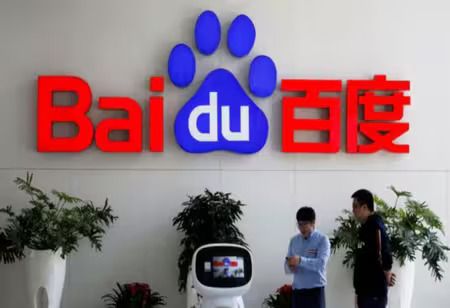
China's Baidu Unveils New AI Processors, Supercomputing Products


Baidu introduced two new AI semiconductors stating that these products can offer Chinese companies robust, affordable, and locally managed computing capabilities.
Rising tensions between the United States and China have resulted in limits on the export of advanced U.S. AI chips to Chinese companies, leading many to create their own processors or look for local options.
At its yearly Baidu World technology conference, the company announced that the M100, a chip focused on inference, is scheduled to be released in early 2026. The M300, designed for both training and inference, is expected in early 2027.
Training develops AI models through pattern recognition in extensive datasets, whereas inference employs those models to generate predictions and handle user inquiries.
Also Read: SCO Summit 2025: Outcomes of Modi-Xi Meeting
Baidu, which has been creating its own chips since 2011, also unveiled two so-called supernode products. These products utilize advanced networking features, connecting various chips and aiming to address the shortcomings in the performance of individual chips.
Also Read: A Brief History of India's Transformation Under PM Narendra Modi
Huawei has launched a comparable product named CloudMatrix 384, featuring 384 of its Ascend 910C chips, which industry analysts regard as more potent than Nvidia's GB200 NVL72, one of the U.S. chipmaker's top-tier system-level offerings. In September, Huawei also revealed plans to introduce more advanced supernode products in the years ahead.
Baidu's Tianchi 256, featuring 256 of its P800 chips, is set to launch in the first half of next year. A more enhanced version featuring 512 of those chips will be released in the latter half.
Also Read: 5 Latest CHRO Appointments in Global Corporations
The firm also introduced an updated edition of its Ernie large language model, which it claimed excels in both text processing and image and video analysis.